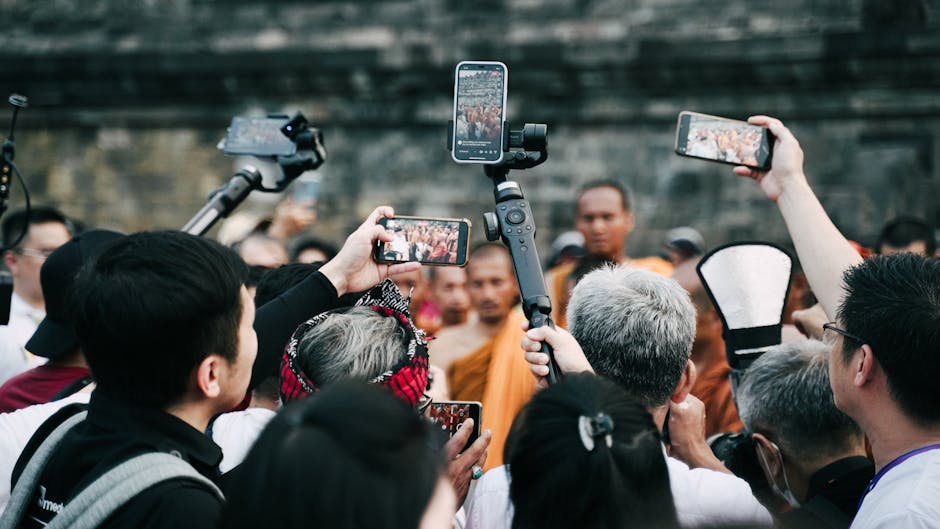The modern traveller is profoundly shaped by the digital world, particularly the pervasive influence of social media platforms. These platforms are no longer just social networking tools; they are integral components of the travel planning process, impacting everything from initial inspiration to post-trip reflections. Understanding this intricate relationship is critical for travel businesses and individuals alike to effectively tap into the global market and navigate the complex journey of modern travel.
A Multifaceted Influence: From Inspiration to Execution
Social media acts as a powerful catalyst in the travel decision-making process. It’s not just a one-way street for brands to promote destinations; it’s a dynamic exchange, where users generate content and influence each other. Initially, inspiration frequently sparks from carefully curated travel feeds, replete with vibrant imagery and engaging stories. Users are drawn to picturesque landscapes, mouthwatering culinary experiences, and authentic cultural encounters, sparking an initial desire for exploration. Platforms like Instagram, Pinterest, and TikTok excel at presenting these aesthetically pleasing and emotionally resonant glimpses into potential destinations, igniting the travel flame.
Beyond Aesthetics: The Value of Authenticity
Users increasingly value authentic travel experiences. While stunning visuals are captivating, authentic accounts provide a deeper understanding of a destination. User-generated content, including photos, videos, and testimonials, becomes vital. This raw, unfiltered perspective offers a more realistic portrayal of a destination, often outweighing promotional materials. Travel bloggers, influencers, and even ordinary users, with their honest reviews and personal anecdotes, hold significant sway in swaying opinion and shaping travel choices. This authenticity is especially critical for travelers seeking experiences beyond the typical tourist hotspots.
The Role of Reviews and Recommendations
Online reviews play a crucial part in the decision-making process. Platforms like TripAdvisor and Booking.com host a vast repository of opinions, both positive and negative. Potential travelers rely on these aggregated reviews to gauge the quality of accommodation, dining, activities, and local services. These reviews are instrumental in ensuring that travelers select appropriate and fulfilling experiences, providing crucial data points on factors crucial for a satisfactory trip. Word-of-mouth, amplified through social media, can dramatically influence the booking process. Moreover, the ability to quickly search and filter reviews based on specific preferences enhances the efficiency and effectiveness of the decision-making process.
Influencer Marketing and Destination Promotion
Social media influencers wield significant influence in shaping travel decisions. These individuals, often with a passionate interest in travel, develop a dedicated following. Their endorsements can impact destination choice by creating a sense of exclusivity and desirability, prompting many to visit those locations championed by their favoured influencers. The resulting exposure can translate into increased tourist traffic, providing economic benefits to the regions involved. This marketing tactic requires sensitivity and transparency to maintain public trust, given the potential for influencer bias.
Beyond Destination Selection: Booking and Planning
Social media also facilitates the process of booking and planning a trip. Many platforms integrate directly with travel agencies and booking websites, offering convenient access to flight and accommodation options. Users can compare prices, read reviews, and finalize bookings directly through these interfaces, reducing the complexity of the entire travel planning process. Moreover, social media groups and forums dedicated to specific travel destinations provide a hub for collaborative planning and the exchange of practical information.
The Impact of Social Media on Post-Travel Experiences
The influence of social media extends beyond the planning and booking stages. Individuals often use these platforms to document their travel journeys in real-time, sharing their experiences with friends and family. This sharing fosters a sense of community and creates a lasting connection with the destinations visited, leading to potential future travel endeavors. The very act of documenting travel experiences often influences future decisions through the potent combination of shared memories and new inspiration.
Navigating the Challenges: Misinformation and Over-Exposure
However, social media’s impact isn’t without its challenges. The proliferation of misinformation and the risk of “over-tourism” need to be carefully considered. The ease with which fabricated or skewed information can spread poses a challenge, necessitating a more critical approach to information consumption amongst travellers. The potential for destinations to become overwhelmed by tourism also demands careful management and planning to ensure a sustainable and enriching experience for all visitors.
Conclusion:
Social media has fundamentally transformed the travel industry, revolutionising how people plan, book, and experience trips. Its ability to inspire, inform, and connect travellers with potential destinations and with each other is undeniably powerful. Understanding the mechanics of this interaction is crucial for travel businesses to tap into this vast market effectively. By embracing authenticity, engaging in responsible influencer marketing, and promoting responsible tourism practices, the industry can harness the power of social media to foster both memorable journeys and sustainable destinations. This intricate interplay of technology, human interaction, and shared experiences promises a vibrant future for the travel and tourism sector.












